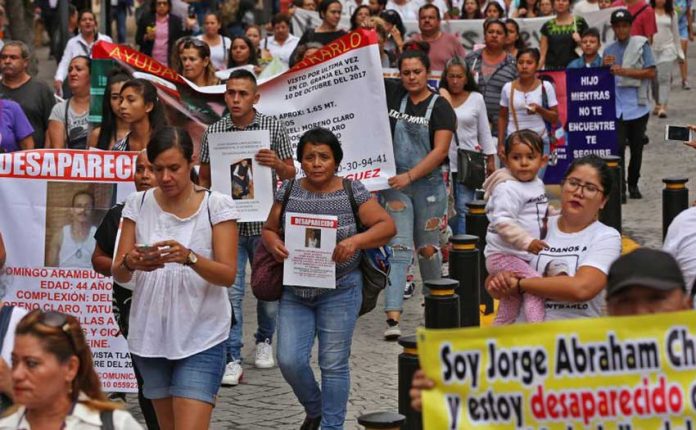The number of people in Mexico officially registered as missing has exceeded 40,000, according to the National Search Commission.
Roberto Cabrera Alfaro, the commission’s outgoing chief, told a press conference yesterday that there are 40,180 people on the National Registry of Missing and Disappeared Persons.
“This registry, which is still under construction, contains the digital identity of each missing person. It includes their name, photograph, biometrics [and] fingerprints,” he said.
The number of cases is 12,657 higher than it was in February 2013, near the start of former president Enrique Peña Nieto’s six-year term.
Former interior secretary Alfonso Navarrete announced in October that there were 37,485 missing persons, meaning that the figure has increased by 2,695 in just three months.
Security forces including police and the military have been accused of carrying out enforced disappearances during the previous administration, including the high-profile case of 43 students who disappeared in Guerrero in 2014.
Cabrera, who announced his resignation earlier this month, also said that information in the Plataforma México criminal database shows that federal authorities have fingerprint records of 36,708 deceased persons who haven’t been identified.
He described the situation in Mexico with regards to the number of missing persons and unidentified corpses as “terrible.”
Since the National Search Commission was created just over a year ago, it has identified 400 corpses, Cabrera said, some of which had been in government morgues for more than 10 years.
The discovery of mass hidden graves in Mexico is common and identifying bodies is often challenging for forensic authorities.
In September, authorities in Veracruz exhumed at least 166 skulls and other human remains from 32 hidden graves located on a property in the center of the state.
Cabrera said that a database established by the commission contains 50,000 genetic profiles created from DNA samples provided by family members of missing persons and bone remains.
“The information must go through several verification processes. However, it constitutes an important step forward in the consolidation of a National Forensic Data Bank,” he said.
Source: Animal Político (sp), Milenio (sp)
